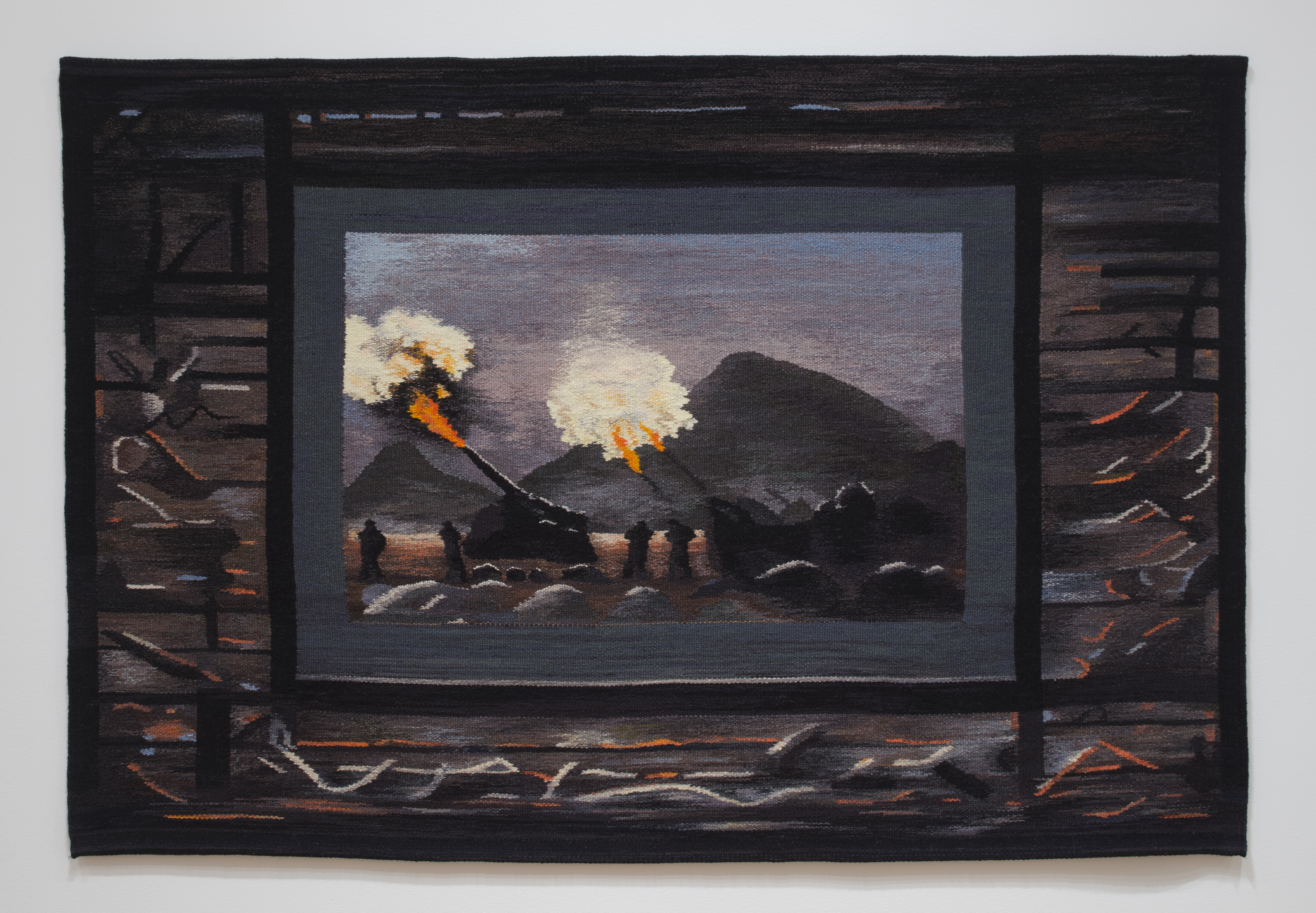Lilian Tyrrell
(London, England, 1944 - 2007, Ravenna, Ohio)
Disaster Blanket/Religious Warfare
1988
Wool and linen
63 7/8 x 94 1/8 in. (162.3 x 239.0 cm)
Collection of the Akron Art Museum
Purchased with funds from Beatrice K. McDowell
1990.1
More Information
Lilian Tyrrell uses a medium traditionally associated with decorative art to make strong political statements. The artist was attracted to weaving as a hobby after she moved from London to rural northeast Ohio in 1968 and soon turned to making tapestries. Initially depicting the empty farmland around her new home, seeing a controlled burning of a building from the road inspired Tyrrell to address more provocative subjects. She began adapting images from mass media, a strategy more closely associated with painters and printmakers of the era, for challenging compositions. The stark desert landscape in 'Disaster Blanket/Religious Warfare' is riven by artillery flares while the rocky foreground and barbed wire in the border keep the viewer distant. The wool and linen Tyrrell used for her weaving could keep a body warm and dry, but the work’s disturbing imagery emphasizes the grim reality of modern warfare.
Keywords
OhioWeaving
WAR AND CONFLICT
Blanket
Religion
Disaster
Wool
Linen
Violence.

